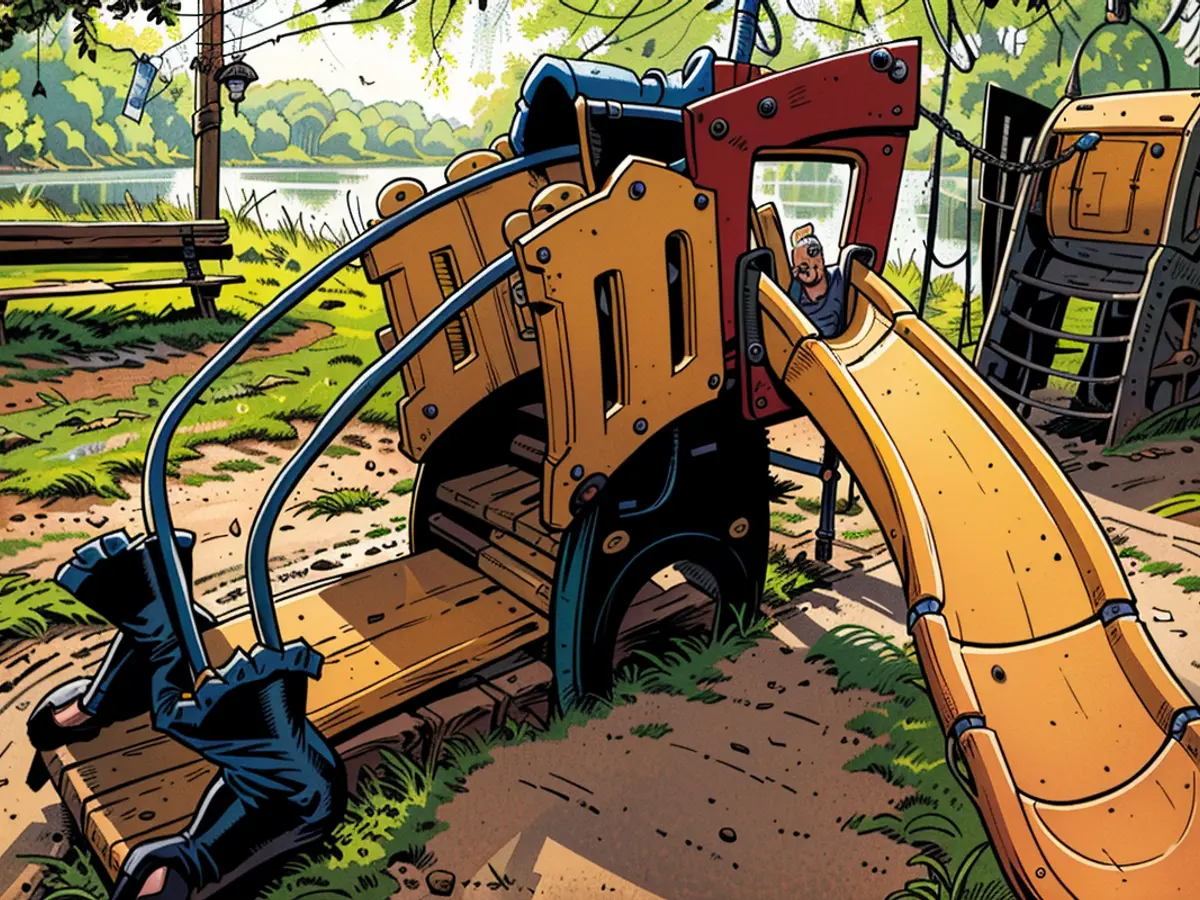- Research uncovers: Typical journey duration for visiting playground is roughly 25 minutes.
The typical stroll to the playground for most German kids usually takes around 25 minutes on foot, as per a study conducted by the Institute of the German Economy (IW). For this investigation, they examined geographic data sourced from OpenStreetMap and population stats from the Federal Statistical Office.
The research reveals that kiddos in Mecklenburg-Vorpommern endure the longest trek, clocking in at an hour and eight minutes to reach parks with swings, sandboxes, and jungle gyms. On the other hand, Berlin kids have the shortest commute, spending just eight minutes to reach their play areas. Urban-rural disparities are prominent, with significant distances noticed in rural eastern Germany.
Playgrounds serve multiple purposes beyond just being a play spot, according to Wido Geis-Thöne, a family policy expert at the institute. Geis-Thöne emphasizes that playgrounds hold significance in rural areas, where numerous families have play facilities in their backyards. He explains, "It's crucial that children in rural areas have access to communal playgrounds."
In terms of cities and districts, Rostock boasts the shortest average journey to a playground at six minutes. On the other hand, Vorpommern-Greifswald district's kids endure the longest commute, at 79 minutes.
In general, approximately 60 children under ten share a single playground nationwide. A lower figure, touching 45 children, is found in the sparsely populated Mecklenburg-Vorpommern, while Hesse reports a higher count of 74 children per playground.
Upon examining various cities and districts, Lukechow-Dannenberg in Lower Saxony benefits from the most favorable ratio with 23 kids per playground, while Oberhausen in North Rhine-Westphalia has the least advantageous ratio with 143 children per playground.
The research focussed solely on free public facilities, disregarding privately marked playgrounds typically found near larger apartment buildings.
Germany's kids from Mecklenburg-Vorpommern have the longest stroll to their local playgrounds, spending an hour and eight minutes, while children in Berlin have the shortest commute at eight minutes.
Playgrounds are essential in rural areas of Germany, ensuring that children there have access to communal play spaces, such as in Mecklenburg-Vorpommern.






